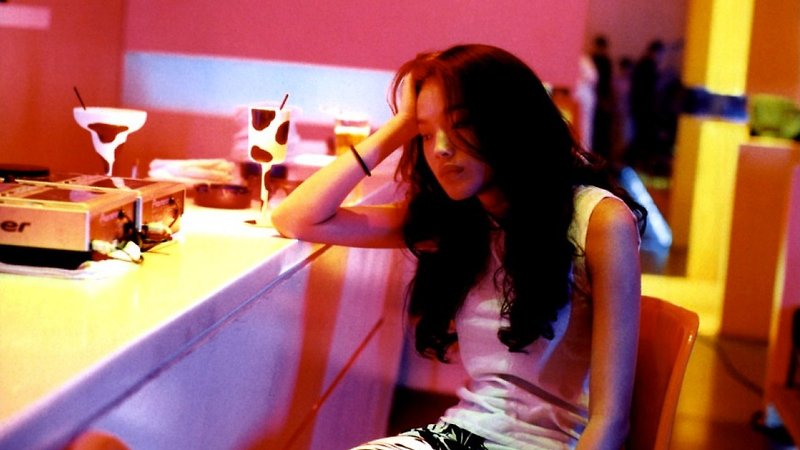
Screened as part of NZIFF 2002
Millennium Mambo 2001
Qianxi Manbo
"This latest work from Taiwanese master Hou Hsiao-hsien (Flowers of Shanghai) is a trippy exercise in nonlinearity that finds the director taking his desire for de-dramatization to the limit, filming only the consequences of events rather than the preceding actions. Hou’s wilting flower is a country girl, Vicky (the luminous Shu Qi), who has her heart shattered in Taipei by sometime DJ/fulltime dolt Hao-hao, and who takes solace in a father figure, Jack (ultra-cool Jack Kao). Millennium Mambo is told in flashback, from ten years in the future, providing Hou with the requisite distance from his young, self-obsessed characters – so unconnected to the world that they can’t even be considered slackers. The film takes place primarily in a dance club, and in Hao-hao’s cramped apartment: both are photographed in an exquisite, fauvist speckling of primary colors by Lee Ping-bin and accompanied by Lim Giong’s throbbing techno. Hou’s wandering camera settles on the field of vision of the characters: when they open their eyes, they almost always see blue – and almost always a city of sadness. Despite a somewhat hopeful ending, Millennium Mambo can be seen as a contemporary version of Flowers of Shanghai – which likewise begins with a long take of people playing a game and consuming opiates. But it also works as the flip side of the most recent Wong Kar-wai film: call it In the Mood for Hate." — Mark Peranson, City Pages
Looking at the young friends around me, I find that their life cycle and rhythm, birth, aging, illness and death move several times faster than those of my generation. This is particularly true among young girls: like flowers, they fade almost immediately upon blooming. The process occurs in an instant. — Hou Hsiao-hsien